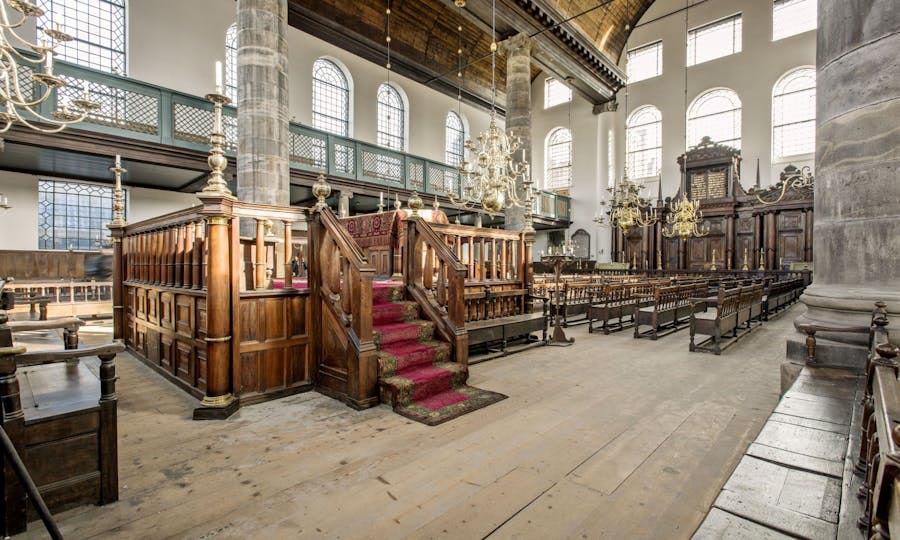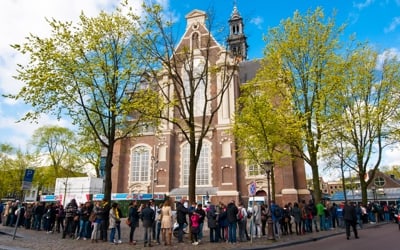
Amsterdam in the Golden Age: the Portuguese Synagogue
Amsterdam’s prosperity in the Golden Age would have been unimaginable without the contribution made by the Jewish community. The Portuguese Synagogue was erected in the heart of Amsterdam in 1675 and was the largest synagogue in the world at the time.
The building is still used as a house of worship but it is also open to the public and concerts are held there regularly. The beautifully authentic interior is guaranteed to amaze, and you will relish seeing the most exceptional collections of Jewish heritage with your own eyes. Be awed by the synagogue’s stunning interior, with its large stone pillars, white plastered walls, and dark furniture, bathed in the abundant light that shines through its 72 windows. Since its consecration in 1675, it has had no electric light or heating; the only artificial light comes from the 1000 candles in the many brass chandeliers. The sand on the wood floor protects it from dirt.
The other buildings in the complex include treasure chambers where visitors can admire a unique collection of ceremonial objects made of silver, gold, silk and brocade. The complex also includes the oldest functioning Jewish library in the world, Ets Haim Livraria Montezinos, which is included in UNESCO’s Memory of the World Register.
The Portuguese Synagogue is part of the Jewish Cultural Quarter, which also includes the Jewish Historical Museum with the engaging Children's Museum, the moving National Holocaust Memorial and the National Holocaust Museum. Here visitors can find out all about Jewish culture, history, and traditions. You can visit all five locations with one ticket, which is valid for one month.
















